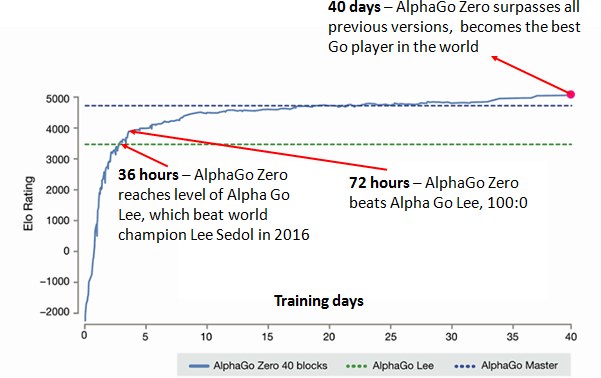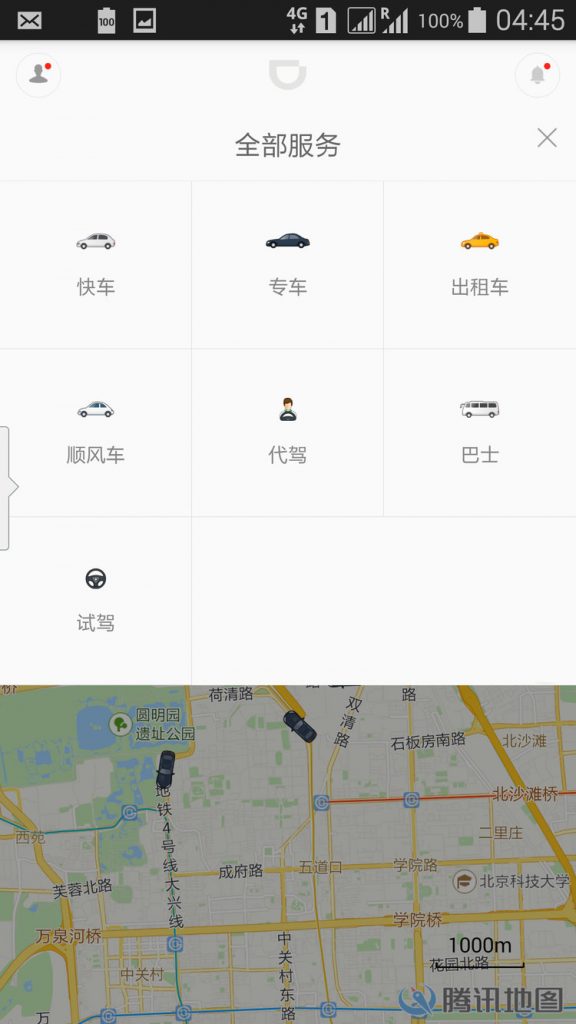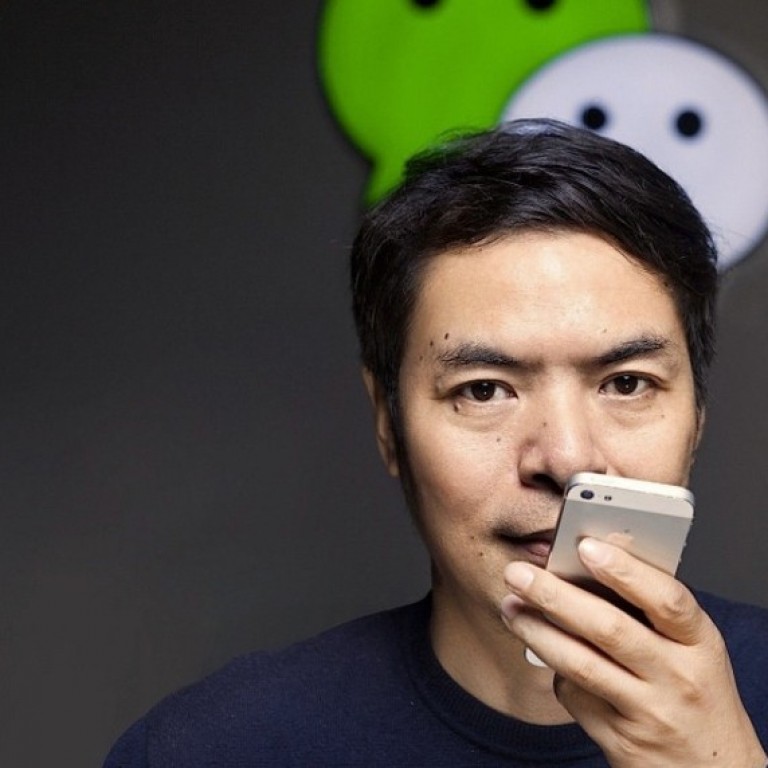From AI breakthrough to China’s SuperPower dream.
A radical new approach led to a breakthrough in AI and proved to be a defining point of the decade. This went on to spark an AI superpower dream for China.
In 2012 a deep learning (Neural Network) won the Imagenet large scale visual recognition challenge. The team led by Geoff Hinton and his PHD students created an AI algorithm to correctly identify images. One of Hinton’s students, Alex Krizhevsky proposed using a neural network instead of a rule-based approach. The resulting Neural network became know as “Alexnet”. They beat all the competition convincingly being able to achieve only a 15% error rate (closest rival only achieved 26%).

From rule-based to neural networks.
The next year other Imagenet teams abandoned the rule-based approach in favour of the neural network approach. Since then the race has been to make better neural networks that teach a computer to learn like a human.
In 1997 IBM’s Deep Blue beat Kasparov at Chess and ever since then the ancient game of Go has been the target of AI research. See the earlier Blog post “Getting to the heart and soul of AI“
The original implementation of the Alpha Go AI used a rule-based approach to learning the ancient game of Go. Human programmers defined what was the best strategy. These rules combined with machine learning and playing millions of games created a powerful AI opponent. This was enough to defeat the reigning human champion Lee Se-Dol in 2016.

Watershed moment
In Kai-Fu-Lee’s book on AI Superpowers he suggests that the defeat of the best Human Go player to AI sparked a watershed moment. The ancient game of “Go” develops logical strategic thinking and philosophy. It was a shock when Lee Se-Dol was defeated 4:1 by the AI.
On one hand, there was a disappointment that this sophisticated strategic game could be beaten by AI on the other the Lee Se-dol 2016 defeat to the AlphaGo sparked an interest in AI in China.
The team at Google created a neural network version of Alpha-Go this time called Alpha-Zero, this has proved even more effective. The Alpha Zero AI can now soundly beat the original Alpha-Go AI by one hundred games to zero (100-0) showing the power of the application of the neural networks.

The defeat to AI in the game of “Go” served as a rallying call to a generation of entrepreneurs to develop AI.
China has a stated ambition to be the global leader in AI over the next 10 years and to become an AI superpower by 2030. There are three key ways that China has an advantage in this race over Western-minded countries.
1. China’s application of entrepreneurial business is more comprehensive than western equivalents.
Airbnb has become successful at selling accommodation but doesn’t actually own any accommodation. Uber sells taxi services but doesn’t actually own any cars. Both of these business models rely on private individuals to supply accommodation and cars. Airbnb and Uber just provide an operational framework to bring together customers and service providers.
China’s equivalent of AirBNB is Tujia.com
In China, the equivalent of Airbnb is Tujia.com which has a very different approach. They manage all the properties themselves ensuring a high quality of service. They also have a direct relationship with Ctrip China’s largest online travel provider so they can provide both travel and accommodation.

This end to end approach for the traveller is flourishing in China where groups can be large with very specific requirements. For example, in China, it is not uncommon for three generations of an extended family travelling with family and friends. To provide consistent quality Tujia has a workforce of 3,000 who take care of housekeeping they also train property owners. Quality is paramount with due diligence that photos represent the property accurately, the results are testimony to the attention to detail with the average property scoring 4.6 out of 5.0.
Melissa Yang founded Tujia.com, a veteran of Microsoft. Who worked at providing customised English search for the Chinese market for Bing. She also worked on Expedia who understood the complex needs of the Chinese market and how to cater to them in a scalable and culturally appropriate way. Tujia.com has 400K properties domestically and abroad and is valued at over $1 Billion USD. They surpassed AirBNB in market share in 2016.

China’s equivalent of Uber is Didi Chuxing
Didi Chuxing was started in China in 2012 and was able to take over the fledgling Uber in 2016. Now it has more than 550 million registered customers in more than 400 Chinese cities and delivers around 30 million rides per day. It’s focus however is much more than Uber’s ride-hailing service, it overs other services such as:

- 2012 – Calling booking of traditional taxis
- 2014 – Better cars at higher price drivers own private cars
- 2015 – Business travel services expense management solutions for corporate clients.
- 2015 Use of private cares options includes Express, Express carpool, Express selects. Also, a Bus service that calculates public transport routes.
- 2015 Designated driver where you can hire a driver to drive your own car e.g after drinking alcohol.
- 2016 Car rental service in the US, Germany and France
- 2016 Minibus combination of car-sharing and public buses to get to specific locations
- 2017 Limousine service with “chauffers”
- 2018 Bike-sharing service.
- 2018 Expanding around the world
Not only does Didi provide all these services to the customers it also owns the gas stations and repair shops that keep the rides in service. It’s this kind of comprehensive approach that makes China a very hard market to penetrate.

2. China has gone from copy cat to contender
China was a copy cat not an innovator in the early 2000’s, but by being “copy cat” they were able to become good innovators and learn lots of lessons. An example of this was Wang Xing who made copy cats of Friendster, Facebook, Twitter and Groupon sites.

Meituan Dianping – China’s leading e-commerce platform for services was inspired by the success of Facebook in the US. He initially strove to mimic the platform in China:
DuoDuoYou – “Many friends” and “Youzitu” that targeted overseas Chinese students were not successful. It was the third attempt the social network Xiaonei, “Within the Campus” went live in 2005 which he quickly accumulated tens of thousands of users in a short period.
He then sold “Xiaonei” for $2 million in 2005. It was later renamed to “Renren” which means “everyone” and is considered the Facebook of China and raised US $740 million when it was listed on Nasdaq in 2011.
Wang went on to launch a microblogging platform similar to Twitter in 2006 called Fanfou, which translates to “have you eaten”. This garnered millions of user but was ordered to be shut down in 2009 in light of protests in Xinjiang Uygur autonomous region in NW China.
Wang continued developing projects despite the setbacks becoming China’s biggest platform for on-demand services, including food delivery. This business strategy of online to offline O2O which connects consumers with merchants is growing. Meituan operates in 2,800 cities and counties in China and competes primarily with Alibaba’s ele.me on demand delivery and ctrip.com in hotel bookings.
Now under the name Meituan Dianping. Wang’s company handles 20 million orders a day and is valued at $30 billion, making it more valuable than AirBNB
AI SuperPowers, Kai-Fu Lee

3. China is culturally open to big brother technologies.
China does not have the data privacy concerns of Europe. This makes it a ripe place for AI to thrive as there a rich source of data to learn.
China’s WeChat app one-stop shop for financial and digital life. China’s population are mobile-first users. Most people’s first experience of the internet is through a cheap smartphone, not a PC.
WeChat was started in 2011 and was created by Allen Zhang. The user base has grown to one billion active users per month.

WeChat offers not only the ability to chat with friends but also order food for delivery, unlock a shared bike, buy groceries, movie tickets, book a doctors’ appointment, order a prescription and even secure some stock even without leaving the app.
WeChat rolled out the ability to send money for Chinese New Year in 2014 with no transaction fees. Since that implementation, China has become an increasingly cash-free society. Additionally, all this data of purchases, travel information, chat data and basically the digital life of someone is all under one roof.
Interestingly, this app has been subsidized by the government since its creation in 2011. It is an accepted reality that officials censor and monitor users. It is poised to even take on a greater role in the form of China’s electronic ID system.

Conclusion
It is clear that China has got some huge advantages in terms of scale and talented people who understand the culture and market opportunities. It is going to be interesting to see how the technology unfolds.
- China’s end to end approach to entrepreneurial endeavours builds a moat and makes it extremely difficult for new companies to break into the market.
- The lack of privacy concerns and the acceptance that the Government will monitor people’s affairs is not a problem for China.
- China’s transition from a copy cat to a contender is complete. I think we will see the country go from strength to strength.
Recently we saw Elon Musk launching the first vehicles made in his Shanghai plant to new customers. He is looking to establish a China design and engineering centre to actually design an original car in China for worldwide consumption.
The trend for investment and development in China is definitely a growth market which shows little sign of slowing down.
